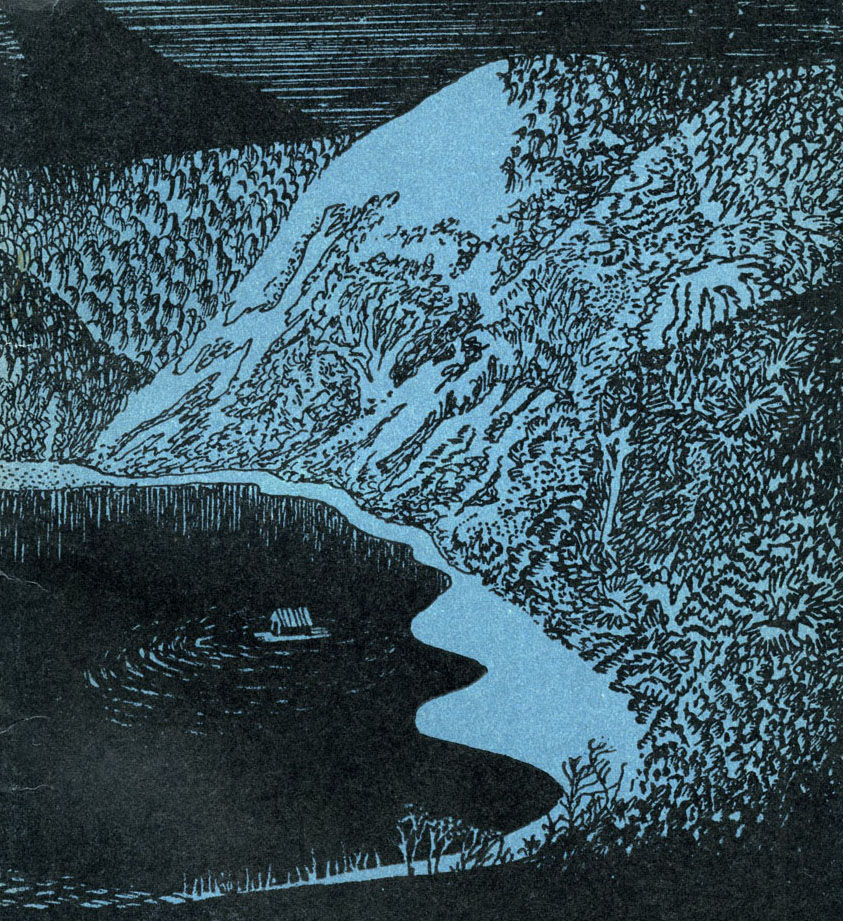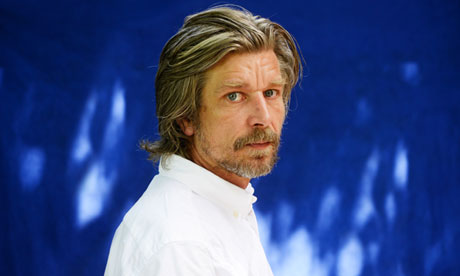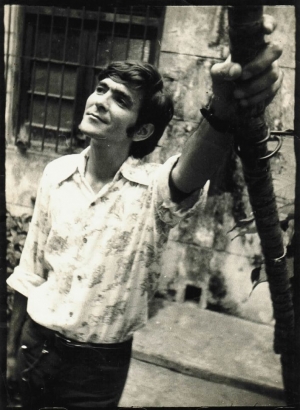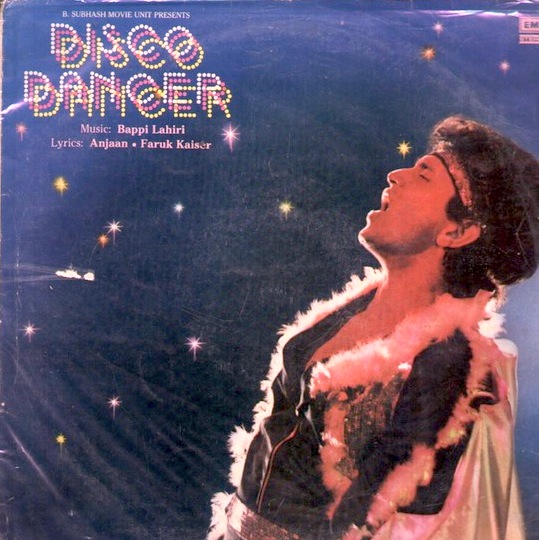On 30th October 2010, the great Dutch author Harry Mulisch passed away—after Reve and Hermans, the last of the ‘great three’ of Dutch postwar literature to leave us. The first time I read Mulisch—it was his great novel The Discovery of Heaven—must have been in late 2010; I remember reading the biographical note in the front of the book, in which he was alive and well, only to have this new-found friend suddenly snatched away from me by the remorseless up-to-dateness of Wikipedia. Wishful memory records that I had in fact started reading The Discovery of Heaven the very day Mulisch died. READ MORE…
Monthly Archives: October 2013
There is a phrase among the earliest in Édouard Levé’s Autoportrait that has remained with me: “When I look at a strawberry, I think of a tongue.” Now, when I look at a strawberry, I think of “When I look at a strawberry, I think of a tongue.” There was a primacy to it, the words became a memory akin to a first kiss or ocean sighting—they became an event, a thing that happened to me. When I read, that feeling is what I look for. To be struck by something, to turn the corner and bump into something beautiful. Sometimes, I find something better.
Paris / worldwide. One exciting piece of news this week is the publication of a new installment of a diminutive Gaulish adventurer’s globe-trotting escapades. Published last Thursday in France, Astérix chez les Pictes also appeared on the very same day in twenty-five languages, which in itself is cause for celebration. Along with the usual suspects (English, Spanish, German, Italian, Dutch) it’s good to see a fair slew of minority languages too. Readers on the Iberian peninsula have been particularly lucky, with no fewer than six editions catering to the various language communities there—Portuguese and Castilian, of course, but also Asturian, Basque, Catalan, and Galician. READ MORE…
This Monday, UNESCO unveiled Krakow as its newest City of Literature, after Edinburgh, Melbourne, Iowa City, Dublin, Reykjavík, and Norwich. The announcement comes after a three-year wait; in its 2010 application (all 68 pages available for download here), Krakow is recommended as “a city of Nobel Prize winners.”
READ MORE…
It was thanks to a phenomenon lying somewhere between chance and merit that I ended up attending the Frankfurt Book Fair. In mid-June I signed a contract for the publication of my translation of Josef Winkler’s When the Time Comes (this is a plug, but not a shameless one). Shortly thereafter I came to Berlin. Among other things, I had hoped to meet Dr. Petra Hardt, the foreign rights directress from Suhrkamp, who had been far more encouraging than one would expect from a person of her stature when I wrote her spontaneously two years back asking to translate a Büchner Prize-winning house author from one of the world’s most redoubtable publishing houses. At the lunch, attended as well by her charming colleague Nora Mercurio and Rainer J. Hanshe from Contra Mundum Press, I was asked whether I would be going to Frankfurt. Luckily the facial expression corresponding to the thought I’m still deciding is not very different from the one for I wonder what I’m supposed to say. “I’m not sure yet,” I said, playing it cool, and Petra said that if I decided to, I should come to Suhrkamp’s party. READ MORE…
Taking license with Ray Bradbury
If you ever pass through Citrus Park, I recommend that you not enter Miss Roberta Donovan’s bar. Keep going, at full speed, and try not to listen to the siren’s song of the women tattooed on that enormous madam. I had the bad luck of stopping in Citrus because my car broke down there. The radiator, the spark plugs, who knows what went wrong with my old ’69 Mazda. Today it’s gone forever in the sands of that ghost town.
Because, gentlemen, Citrus Park is a ghostly town. There are no garages, no markets, no pharmacies, no cafés: nothing. One glance is enough to understand that it’s completely uninhabited, perhaps due to those hurricanes in the early part of the century that beat the Florida coast with unusual fury. The houses are in ruins, the streets are made of white sand, and millions of giant red ants crawl over everything in search of scarce shrubs found around the periphery. They’re enormous ants, perhaps the world’s largest, and they attack humans, leaving enormous terribly itchy welts. READ MORE…
DISPATCH: International Translation Day, London, 30th September 2013

Asymptote Editor-at-Large Nashwa Gowanlock reports from ITD 2013
If there’s any sure sign of dedication to a cause, then it’s a group of UK-based translators voluntarily heading towards a day-long symposium indoors on an unseasonably warm late-September day in London. As I exited the labyrinth that is Kings Cross station to be blinded by the unexpected sunshine and made my way to the British Library, I noticed the clock on the tower of the St Pancras station. I was running late. The lack of tell-tale signs of a nearby conference about to start—no small clusters of strangers wearing identical badges, cradling coffees or cigarettes while studiously ignoring each other—confirmed it: I was late for the opening session. READ MORE…
REVIEW: The Black Lake by Hella S. Haasse

Madeleine LaRue reviews Ina Rilke's translation of The Black Lake by Hella S. Haasse.
Set sometime between the two World Wars, Hella S. Haasse’s The Black Lake is narrated by a boy growing up on a plantation in the Dutch Indies. With parents too distracted by work and their own unhappy relationship to pay much attention to their son, the boy spends his childhood among the native servants, speaking better Soendanese than Dutch and exploring the jungle with Oeroeg, his best friend and constant companion. READ MORE…
Pop songs by their very nature worm their way into your head Suzanne Vega-style, their hooks made to be memorable, their melodies fine-tuned for instant recall. No wonder then that they travel so well; Miley’s latest hitting just as hard in Madrid as in Atlanta or Cardiff. What’s more, a great pop song doesn’t just transfer well in its original incarnation, American or British pop songs are easily translated, re-arranged, and sold in other countries (sometimes even by the artists themselves; the Beatles in German! Stevie Wonder in Italian!).
Even more astonishingly (especially from a literary standpoint) songs in Hebrew or Korean have sometimes been hits outside of Israel or South Korea without undergoing any changes or translations. And that’s not even mentioning the songs originally written in Hungarian or Portuguese that conquered the world in English translation. This biweekly series will be your guide in this pan-global pop conspiracy, reintroducing you to songs you thought you knew and opening your ears to the wonderfully deep reserves of fantastic covers places like Thailand, Germany, or Ethiopia have to offer.
“When I was young I brushed my teeth with a straight piece of bone, the bristles were thick and hard like a wheat field, until my mother would rub her finger over them and complain ‘Damien, that’s disgusting, you know you’re supposed to say when your brush is worn out!’ and throw the thing in the drawer of the painted sideboard. Later, in the years when I was still wearing long, striped bathing suits, we had slightly curved implements, the handles I mean. The bristles were in clusters separated by a little gap, like a flowerbed, and on the back there were little holes in the furrows and thin colored lines, like on the bathing suits… They lost their bristles very fast, and then my mother blamed me for getting rid of them too often. I don’t know why we didn’t throw away toothbrushes at our house. There was a drawer full of them, out of commission—a toothbrush graveyard. The sideboard Aunt Cécile had painted was a Campo Santo of objects: we put everything broken, or no longer used, in there… Then came the era of metal brushes. It was after I came back from the regiment. They were pitiful things. The others, the bone ones, turned yellow, but it didn’t help to call the steel in the new ones stainless, it aged very badly.” READ MORE…
Welcome one and all to Asymptote Blog, a brand-new resource on translation, literature, film, music, and the arts from around the world. We’re delighted to be launching on the very same day Asymptote Journal launches its October 2013 issue—the twelfth instalment of what is becoming a venerable institution. Featuring the best of international writing and translation, Asymptote is the fruit of a globe-spanning collaboration between a team of literature lovers stretching from Taipei to Buenos Aires, London to Sydney, Los Angeles to (really!) Kathmandu—you get the picture. With every quarterly issue of the magazine, Asymptote’s team of brilliant editors and contributors helps bring a fresh set of voices into the world.
This blog will be a place for even more voices to be heard. We’ll be bringing you several doses a week of book, film, and music criticism, original translations, interviews with writers and translators, and literary news and opinion from around the world. Over the next few days you can look forward to a new translation by Damion Searls of a Louis Aragon story, a review of Hella Haasse’s The Black Lake, and an introduction to Hindi disco music … in short, Asymptote Blog will be the place to come for original writing unconstrained by form, content, or geographical boundaries. Happy reading!
Zack & Nick
Blog Editors, Asymptote
If you are interested in writing for us, please don’t hesitate to submit your writing or pitch your ideas—we’d love to hear from you. You can reach us at blog [*at*] asymptotejournal [*dot*] com










